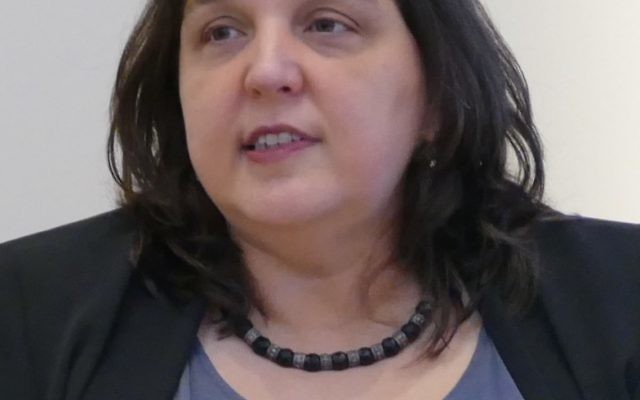Women in Mideast Struggle for Rights
By Sarah Moosazadeh | sarah@atljewishtimes.com
Women lag in rights across much of the Middle East, but they increasingly are taking prominent roles in protests against repressive regimes, according to a Power to Inspire Summit session on “Women’s Human Rights Defenders: Challenges in the Middle East.”
Jill Savitt, the National Center for Civil and Human Rights’ human rights curator, discussed those challenges with 2016 Power to Inspire Award recipient Sussan Tahmasebi.
Tahmasebi was born in Iran and moved back in 1999 during a period of reform. She is the founding member of the One Million Signatures Campaign, which encouraged discussions about ending gender-biased laws, and has spent two decades fighting for human rights for women in the Middle East.
After its 1979 revolution, Iran adopted a conservative interpretation of Sharia law that stripped many women of their rights. Although women were granted custody of their children, they were not allowed guardianship in court cases. Husbands make decisions for their wives even though women make up a majority of the workforce.
“Women in Iran are highly educated, yet the legal system is different from the reality within their lives,” Tahmasebi said.
Human rights are a constant challenge across the Middle East. Egypt, for example, has 40,000 political prisoners, compared with 800 in Iran. Tukey has the highest number of journalists in prison, and Kurds are targeted and killed in Turkey, Iraq and Afghanistan.
“Each country provides a counter-narrative, but the challenges they face are similar around the world,” Tahmasebi said.
Rights campaigns and movements have spread across the Middle East. Young people have responded to repressive regimes by expressing a need for democracy. Women have joined men in the protests.
Bahareh Hedayat, for example, is serving a 10-year sentence in Iran for participating in student protests.
“If you’re a woman who wants to create change, you will receive backlash,” Tahmasebi said. “Yet where there is a will, there is a way.”
Nonprofit organizations such as the International Civil Society Action Network, which Tahmasebi serves as the director of the Middle East and North Africa/Asia region program, help bring people together and raise awareness for human rights and equality. “A revolution will not be funded,” she said. “It takes grass roots and people to come together to make a change.”





comments